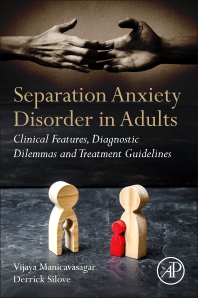Books in Social sciences and humanities
Books in Social sciences and humanities

Recent Advances in Parkinson's Disease
- 1st Edition
- Volume 252
- April 2, 2020
- English

Preventing Domestic Homicides
Lessons Learned from Tragedies- 1st Edition
- March 24, 2020
- Peter Jaffe + 2 more
- English

The Role of Public Participation in Energy Transitions
- 1st Edition
- March 21, 2020
- Ortwin Renn + 2 more
- English

Functional Analysis in Clinical Treatment
- 2nd Edition
- March 20, 2020
- Peter Sturmey
- English

Technology and Adolescent Health
In Schools and Beyond- 1st Edition
- March 20, 2020
- Megan A. Moreno + 1 more
- English

Transformative Library and Information Work
Profiles in Social Justice- 1st Edition
- March 13, 2020
- Stephen Bales + 1 more
- English

Separation Anxiety Disorder in Adults
Clinical Features, Diagnostic Dilemmas and Treatment Guidelines- 1st Edition
- March 12, 2020
- Vijaya Manicavasagar + 1 more
- English

Advances in Child Development and Behavior
- 1st Edition
- Volume 58
- March 10, 2020
- English

Technology and Health
Promoting Attitude and Behavior Change- 1st Edition
- March 6, 2020
- Jihyun Kim + 1 more
- English

Introduction to Emergency Management
- 7th Edition
- March 5, 2020
- Jane Bullock + 2 more
- English